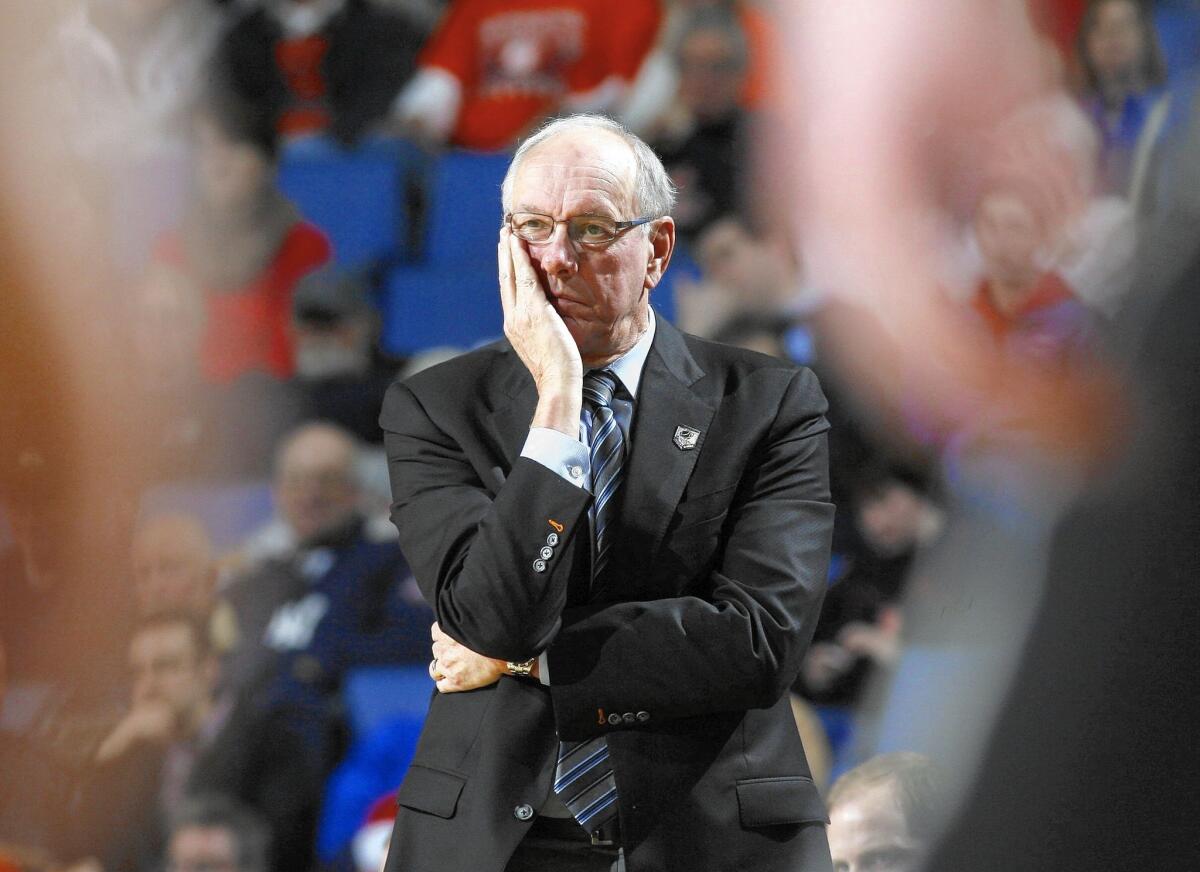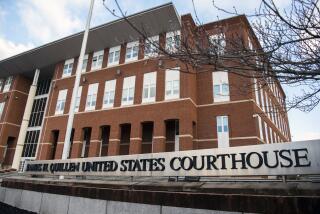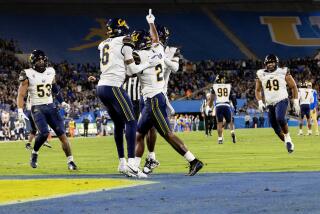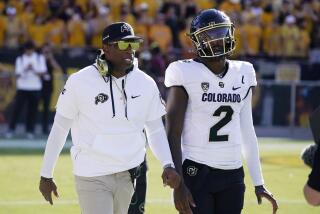Big-time college sports should split from their universities

This is the time of year when we are reminded of the incredible riches to be earned from big-time college sports. Among the top seeds in the March Madness NCAA men’s basketball tournament is the University of Louisville. The public university is known nationally for almost nothing except its ability to translate its success on the basketball court into money. The basketball program brought in a tops-in-the-nation $40.6 million last year, recording a profit of more than $24 million.
But other recent developments in college sports are reminders of the blight underlying such glittering numbers, and the corruption that results when an extracurricular activity becomes a billion-dollar industry.
On March 6, the NCAA released a disciplinary report that the athletic department at Syracuse University engaged in academic fraud over 10 years to keep its academically underperforming stars in the game.
Using the players’ online IDs and passwords, administrators and tutors masqueraded as the players in submitting bogus coursework. This was all allegedly managed by the director of basketball operations who reported directly to the school’s revered head basketball coach, Jim Boeheim.
The NCAA has ordered 108 wins stripped from Syracuse’s past basketball and football records and the return of the school’s payouts from conference and NCAA postseason tournaments.
Then there’s the Ed O’Bannon lawsuit, which underscores that the wealth enjoyed by college sports powers in basketball and football comes from the labor of an unpaid and exploited workforce — the players, whom NCAA schools prefer to call “student-athletes.” Oakland federal judge Claudia Wilken ruled last August in favor of O’Bannon’s antitrust claim that the NCAA illegally deprived student players of rightful compensation when it licensed their names and likenesses to video game companies and others. On Tuesday, just two days before the first tipoffs in the round of 64, the U.S. 9th Circuit Court of Appeals heard arguments in the NCAA’s appeal.
This all points to the inescapable conclusion that the business of college basketball and football has forced academia into a model that is “fraudulent at its core,” in the words of Jay Smith and Mary Willingham. Their new book “Cheated” chronicles a massive cheating program at the University of North Carolina that gave athletes top grades for no-show classes. (An NCAA investigation is ongoing.)
Smith and Willingham list all the ills brought to academia by its capitulation to the business demands of its big sports programs: “Under-the-table payments to players, recruiting violations, cheating in the classroom, and an out-of-control ‘arms race’ that has given us millionaire assistant coaches, lavish training facilities, and skyrocketing ticket prices.”
Boosters argue that the athletes get a college education and training for a possible pro career at a discount, or for free. Still, only a tiny minority end up in the pros, and many of the rest don’t get an adequate education, either. Many aren’t academically qualified to be on campus. That’s why keeping them eligible to play sometimes requires academic fakery.
Critics of college sports maintain that big-business college programs — that is, NCAA Division 1 football and basketball teams — should be severed from their universities and reconstituted as independent minor league pro teams.
“There’s no viable alternative,” says William C. Dowling, a Rutgers English professor who has helped spearhead a so-far unsuccessful battle to take that New Jersey public university out of NCAA Division 1 football. “The players you need to have are so academically underperforming you can’t pass them off as students.”
University of Michigan President Mark Schlissel admitted as much in November, shortly after taking office in Ann Arbor. To fill its football roster, he said, the school admits students who “can’t honestly, even with lots of help, do the amount of work and the quality of work it takes to make progression from year to year.” In recent years, graduation rates for football players were below 60%. The main factor was the “academic deficiencies” of the student-athletes, he said.
Those deficiencies prompted the Syracuse fraud, which included a university employee writing a paper for basketball star Fab Melo. The idea was to raise Melo’s grade so he would retain his playing eligibility in 2012, when the school was seeded No. 1 in the NCAA tournament. (After the fraud unraveled, Melo got an F. Syracuse was knocked out of the tournament in the regional finals.)
Confronted with academic fraud, any university that genuinely put academic integrity first would clean house, from the department chairman on down. Syracuse, however, complains that some of the NCAA’s penalties are “excessive and disproportionate” and says it will appeal.
Boeheim, 70, will stay on for three more years. At a news conference last week, Boeheim said he accepted “responsibility” for the actions of his program but said he had no “personal involvement” in the violations and would appeal his nine-game suspension for next season’s 18 conference games. He even accused the NCAA of “racism” for focusing on the help given to Melo, a black player from Brazil.
The machinations of team boosters, appeals to athletic traditions and cries of “school spirit” only obscure how the expense and distraction of big-time basketball and football undermine the purpose of the university. Most college programs, even the big ones, don’t pay for themselves, much less return profits to their schools. For all Louisville’s success in men’s basketball, the team plays in a $238-million arena for which Kentucky taxpayers footed the bill.
The NCAA’s efforts to thread the needle with which “the billion-dollar business of college sports has been grafted onto a group of institutions whose raison d’etre is educating students,” as Smith and Willingham write in their book, condemns the entire system to absurdity. Late last year, Michigan awarded a $7-million annual salary to its new head football coach, Jim Harbaugh. A few weeks later, the NCAA ended the college career of Baylor running back Silas Nicita, a Bakersfield native, because he accepted help finding an apartment after a year of homelessness. Tell me again that this system is run for the benefit of the “student-athlete.”
Back in 1951, O’Bannon’s appellate brief documents, a New York state investigation found that football and basketball were “no longer amateur sports.”
“Athletes were ‘bought and paid for,’” the brief says, quoting Judge Saul Streit, the chief investigator. “Scouting and recruiting violations were ‘almost universal.’ Academic standards were evaded through ‘trickery, devices, frauds, and forgery.’” Who was at fault? “College administrators, coaches and alumni groups who participate in this evil system.”
In the intervening 64 years, only the numbers have changed. As they continue to get bigger the necessity of recognizing these sports as businesses and cutting them loose from the university will keep getting bigger too.
Michael Hiltzik’s column appears Sundays and Wednesdays. Read his blog, the Economy Hub, at latimes.com/business/hiltzik, reach him at mhiltzik@latimes.com, check out facebook.com/hiltzik and follow @hiltzikm on Twitter.







